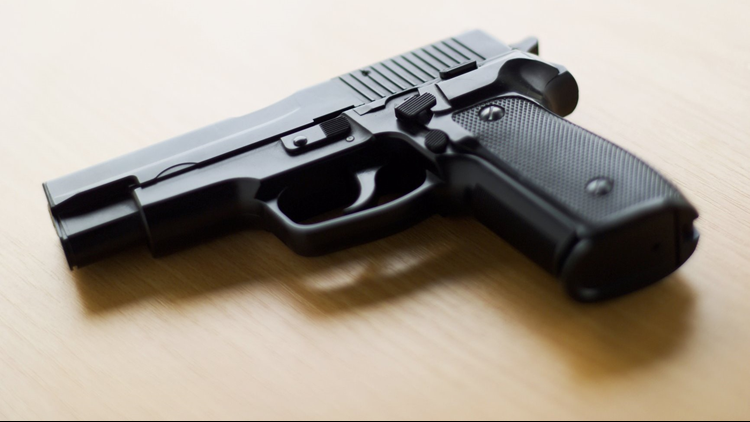You read that title right- this week’s civic issues blog is going to be about guns. They are as American as apple pie, and as, well, themselves. This post was inspired by David Hogg’s appearance on campus last week. I did not have the opportunity to actually attend, but his claim to fame is being a staunch advocate of gun control, so he will always be attached to that issue.
Guns are one of the most American aspects of American culture. After the Constitution did not clearly establish the fundamental rights of every citizen, a list (or “Bill”) was in order. This is, of course, the Bill of Rights. The First Amendment is at the core of American ideals- the freedoms of speech, religion, the press, assembly, and petition of the government. Without this First Amendment, America is vastly different and possibly nonexistent by now. So far the Bill’s authors are firing on all cylinders, with very important core values. Cannot wait to hear what the next one is.
The Second Amendment is… an organized militia and the right of citizens to bear arms? What?
For context– a militia just freed a whole colony from America’s big brother and predecessor (in terms of world dominance)- Great Britain. Regular men used guerrilla warfare and their own personal muskets to topple British leadership in its own colony. To the Founding Fathers, it was just proven that a militia is the ideal protection instead of a standing army, and America was not going to be on the offensive any time soon, especially with its excellent natural defenses already in place. Well, oops, America of today has one of the largest standing armies to ever exist. By all means, a nation can try to attack the U.S., but it would have to first do it without the U.S./one of its allies finding out, get past said army, likely have to cross one of the surrounding oceans, and then maybe it has a chance of holding out for a little. So clearly, militias are moot at this point.
One of the arguing points is whether guns should be permitted for the public based on the idea that constituents have the right to stand up against a despotic government, like the colonies did against Britain. Many in the U.S. believe that if the government is infringing on your rights, you have the right to defend yourself. The opposition would argue that you can no longer defend yourself from the government anymore. The U.S. has had nukes for over sixty years, and enough weaponry to make sure you do exactly what it wants you to, or die.
These are all issues that are discussed for the sane/non-violent. But the other large issue in this nation is mass shootings. The Washington Post has a master stat sheet of sorts on mass shootings in the United States, starting with the 1966 University of Texas shooting, killing 17. Just this century, Columbine, Virginia Tech, Sandy Hook, Pulse, Las Vegas, and David Hogg’s own Parkland are some of the largest shootings in both total deaths and injuries. Mass shooting deaths number above 1,100, and those injured are even higher (Las Vegas alone totaled over 500 injured). The United States undoubtedly has a mass shootings problem, as two of the most deadly ones to ever occur happened within two years of each other, and shootings have become more frequent in general. Fortunately, not every mass shooting claims lives in the double digits- in fact, The Washington Post defines a mass shooting as a shooting that kills four or more people.
In regards to those statistics, the fact that anyone is innocently and randomly destroyed because a person felt that they must take lives that day is unbelievably tragic, but mass shootings are comparatively small numbers when accounting for total gun deaths in the United States. The total amount of gun deaths in America for 2017 was just under 40,000. The New York Times did the math and noted that “2017 also increased slightly to 12 deaths for every 100,000 people [adjusted for population size].” Very important note- 2/3 were suicides and a large amount take place in crime-ridden urban areas (gang violence, for example).
Today, America has a “gun-related death problem.” Half of the nation would rather call it a “gun problem,” and the other half would rather call it a “mental health issue” or “terrorism” or any other issue that just so happens to also be associated with guns. Both sides make good points (depending on who is making them, that is), but neither side is willing to compromise. Much like abortion, guns are now bipartisan. Democrats represent gun control advocacy, and Republicans represent not restricting guns, but instead focusing on mental health/gun safety/gun responsibility (for example, parents hiding or locking away their weapons, especially since school shootings are usually done with a family member’s gun).
Guns have been a part of America ever since they were used to free America in the first place, but today they have become a major point of contention in the country. Many U.S. leaders are even scared to act or speak out at all, for fear that they will anger at least half of their constituents. The fear of action is why legislation is rarely ever passed relating to the issue at hand, and America seems to be caught in a constant cycle of tragedy, anger, protest, and inaction.


I think this was a really good way to talk about the problems we face in this country concerning guns. The fact the gun control has become a partisan issue has lead to the stagnation of any progress on actually stopping gun violence.